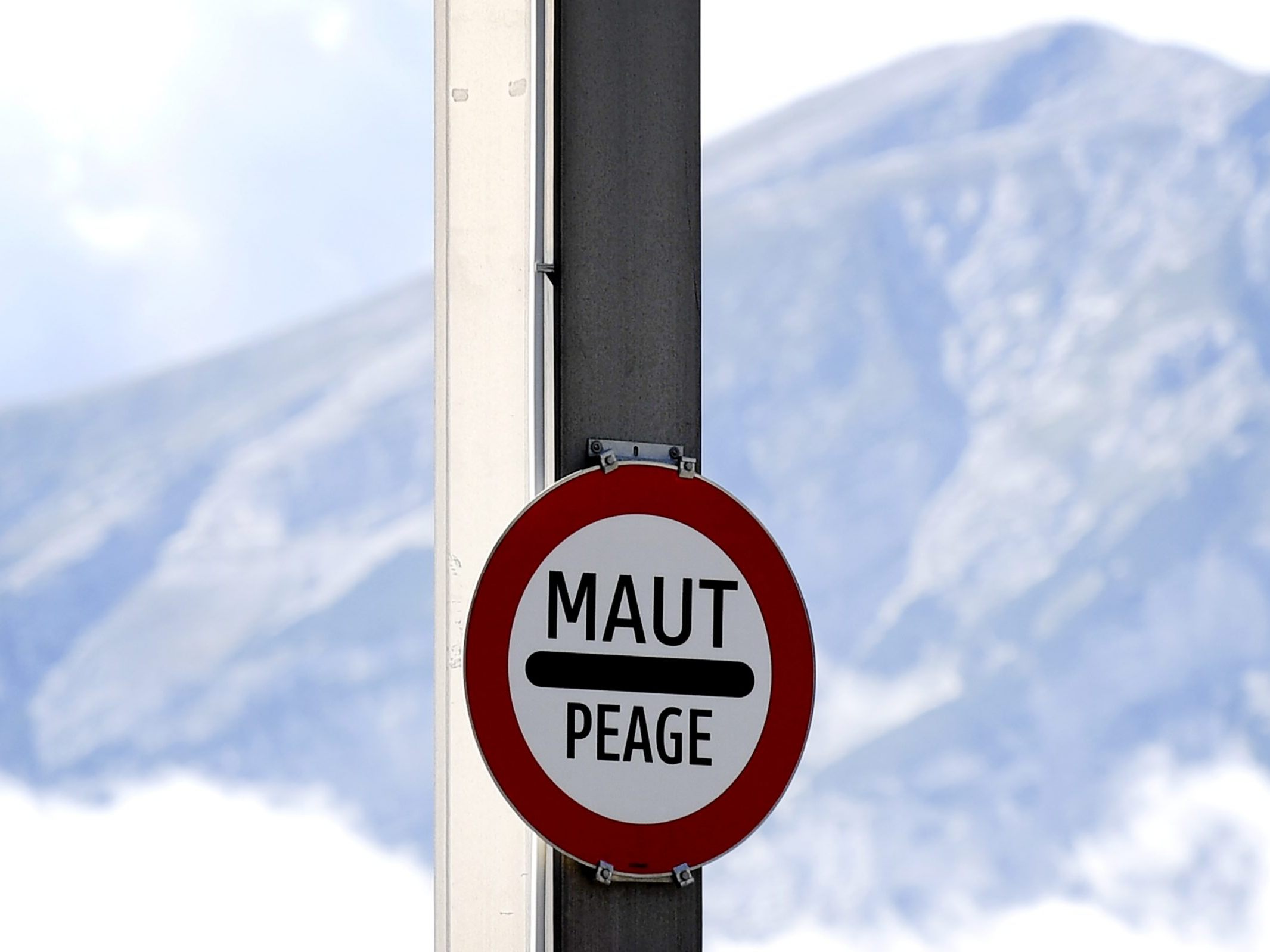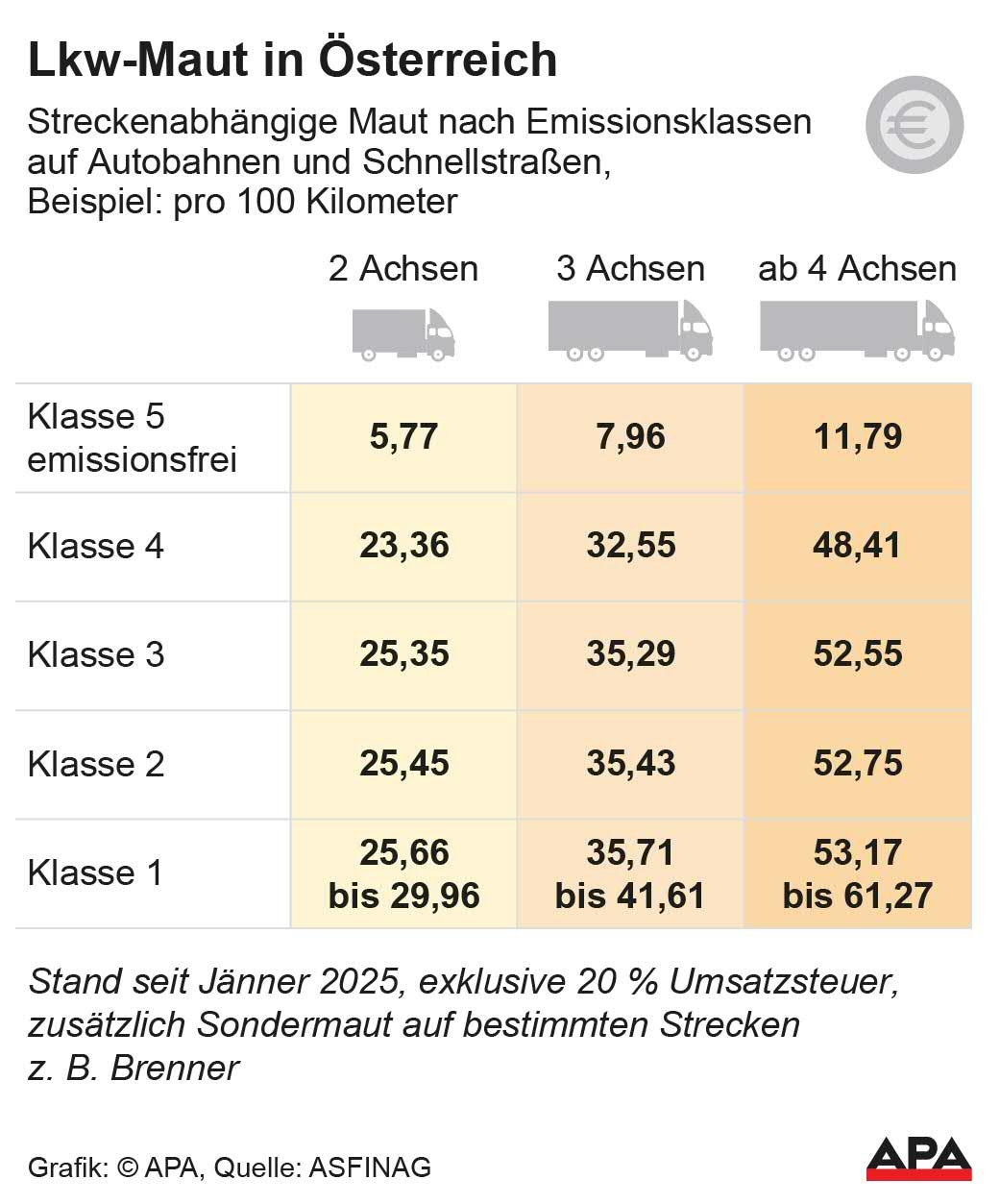Tensions Due to Planned Increase in Truck Toll

Although SPÖ, ÖVP, and NEOS have fundamentally agreed on an increase, the ÖVP rejects the measures proposed in the Ministry of Transport's draft. The domestic economy would be more burdened than transit, criticized ÖVP transport spokesperson Joachim Schnabel on Tuesday in the Ö1 "Morgenjournal".
The draft includes, among other things, significantly increasing the surcharges for noise pollution and air pollution. The goal is greater cost transparency in road freight transport and ecological steering. Based on this, 42 million euros in additional revenue are already budgeted for 2026. The existing tariffs currently range between five and 61 cents per kilometer, depending on the size, emissions, and noise level of the vehicle.
NEOS See Pressure from Freight Lobby
The ÖVP finds the draft too one-sided. In economically difficult times, the goal cannot be to burden domestic companies more than international transporters, said the ÖVP transport spokesperson in the "Morgenjournal". To still reach the targeted 42 million euros, Schnabel can imagine making the one-day and ten-day vignette more expensive. This way, trucks and freight companies would be less burdened, but car travelers would contribute. NEOS has sharply criticized this, as reported by the "Tiroler Tageszeitung". The ÖVP would block the increase in truck tolls under pressure from the freight lobby, says NEOS transport spokesperson Dominik Oberhofer.
In his view, the planned increases "exactly hit the loud, high-emission trucks," said Oberhofer in the "Morgenjournal". "That means, those who switch to new technology even save on the toll increase, and this is also a thesis of the ministry, that it would rather affect foreign freight companies than domestic ones."
Traffic Expert for Expansion of Truck Toll
The traffic scientist Günter Emberger from the TU Wien pointed out in the same Ö1 report that trucks currently only cover 20 to 25 percent of the costs they cause on the roads. Therefore, a continuous toll increase is necessary - also to promote the shift of freight traffic to rail. Emberger also advocated for an expansion of the truck toll to federal and state roads. Damage and costs also arise there, which are currently not borne by the causers.
The Ministry of Transport has so far refrained from making an official statement, citing ongoing discussions. Coalition negotiations on the specific design of the toll rates are ongoing.

On the sidelines of a press conference of the Federation of Austrian Industries (IV), which traditionally wants a kilometer-based toll for cars, Secretary General Christoph Neumayer on Tuesday advocated for "cost truth." The current timing is "unfortunate, solutions are needed that go far beyond what has been circulated so far." The IV has always been in favor of a "convergence between trucks and cars."
The Greens, on the other hand, want a higher truck toll. "The only sensible ecological measure in the transport sector that is currently even being considered is now at risk of collapsing under the pressure of the freight lobby," complained transport spokesperson Lukas Hammer.
(APA/Red)
This article has been automatically translated, read the original article here.





